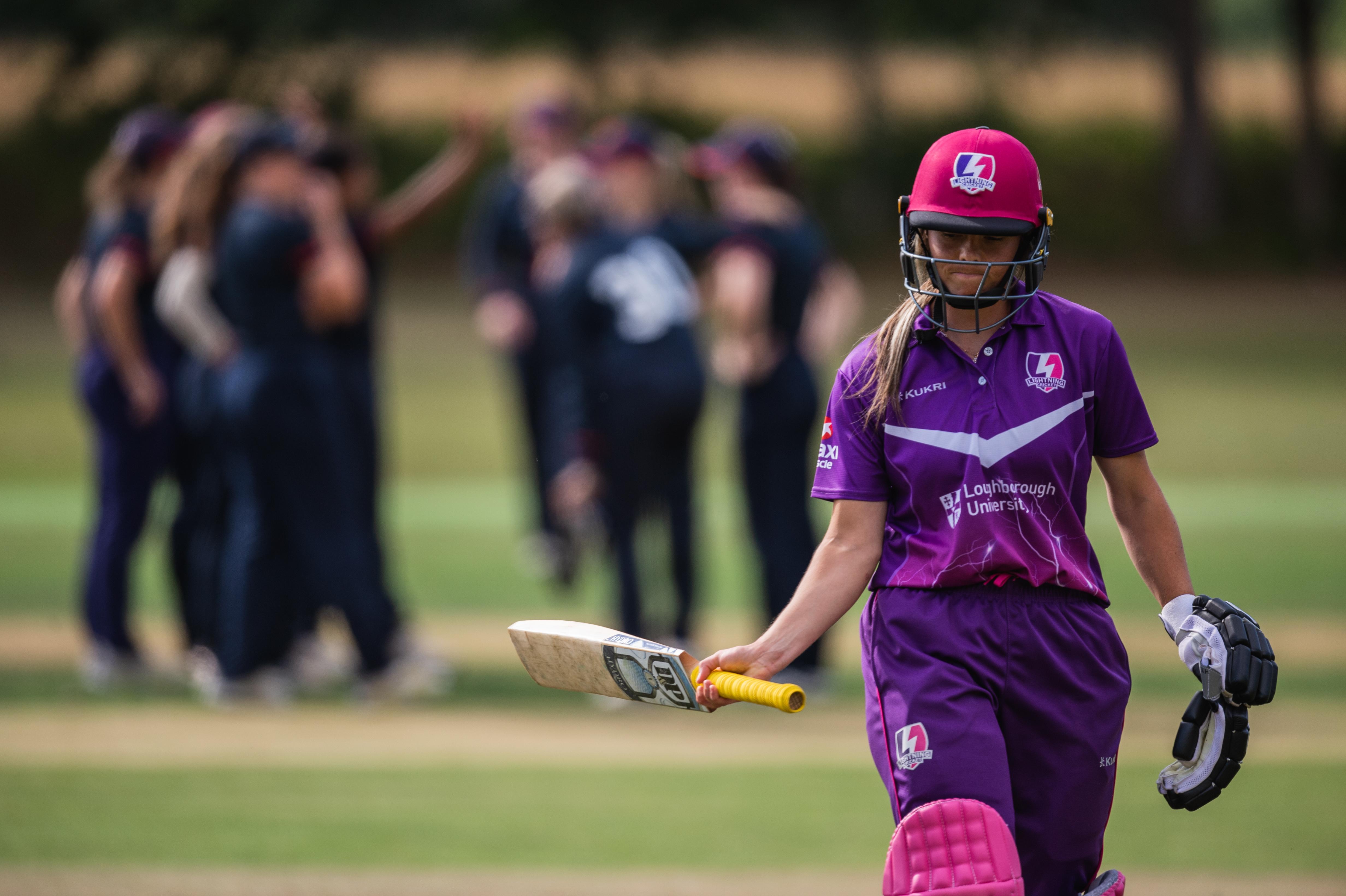Platform Preview

Disappointment is THE unavoidable part of being an athlete. It's not just about losing a race or match; there are so many other potential causes:
- Not meeting performance goals.
- Not being selected or receiving desired playing time.
- Dealing with injuries or setbacks.
-
Missing out on opportunities or not achieving expected outcomes.
Sadly, there's no escaping the fact that the emotions associated with disappointment are likely to be by far the most commonly experienced. It, therefore, stands to reason that taking a healthier approach to losses or subpar performances will make their experience of sports more enjoyable.
Ellie Threlkeld, Professional Cricketer
Understanding that no athlete can constantly succeed and that numerous uncontrollable factors can influence a result can help them process loss in a more beneficial way.
Acquiring the ability to view disappointments as learning and improvement opportunities, i.e., by adopting a growth mindset, will help, but this will take time and experience and is something young athletes will find hard to grasp.
Using the phrase “losing is learning” can be a powerful mantra to help them develop this mindset.
In the early days, many will blame external factors like equipment and the weather. Encourage them to become more philosophical and instead look for changes and improvements they can make that might produce a different result next time.
Knowing How to Help
A parent's hardest challenge is knowing how best to support them after disappointing performances. Of course, asking them how they would prefer you to help is the most obvious way of finding out, but let's face it: this age group tends to be somewhat averse to conversations about feelings and emotions... especially if it's with a parent!!
One thing's for sure: what works for one athlete isn't guaranteed to work for another, so it's not a case of simply copying what other parents do... though there's no harm in trying! Learning through trial and error is your best strategy.
Only by trying will you know whether your comments, intended as helpful and caring, are received that way. If they’re not, don’t take it personally. This can feel like the most thankless task in the early days, especially when nothing you say or do seems right! But remember, their frustrations and upsets will always be taken out on their nearest and dearest... and in these scenarios, parents will invariably receive an unfiltered emotional response. You will eventually get to know what helps and what rattles them!!
When Words Don't Work...
Yes, it can be all a bit of a minefield for parents...
If, no matter what you say or do, nothing seems to help, saying nothing will be the best tactic. Some athletes will prefer this 'less is more' approach, and for many, leaving them more time to process what happened before commenting will be what they really need.
Acknowledge and accept that their silence/non-communication is probably part of their processing of what happened and that sometimes, they need to shut everything out… including you! Again, don’t take this personally.
Sometimes, a better approach is to leave them to offload first to fellow athletes who can better relate to their frustrations.
Our own personal approach was to let the coach be the first point of contact. Coaches are far less likely to receive the emotional onslaught and will adopt a more business-like approach, eventually focusing proactively on technicalities and tactics when they feel the athlete is ready. Once this conversation had happened, emotions were calmer.
Rory Leonard, Professional Distance Runner
Post-Performance Analysis
Attempting to analyse the performance with them immediately after an undesirable result is unlikely to be appreciated. Emotions will still be far too raw. This goes for the car journeys home, too...
NOTE: The last thing any athlete wants is to be trapped in a car with parents intent on discussing where they went wrong in a performance they are desperately trying to forget. Our advice: Don't do this...
Dreading the immediate post-defeat fallout and the silent car journeys home benefits nobody, so try to find ways to support them that work for both you and them. Reminding yourself of the hours of training they devote to their sport can help you better understand their frustrations. Defeat may not feel like a big deal to you, but to them, it is. Let them vent their frustrations and respect their need for space, and if they don't want to talk, respect this, too!
The standard car journey tactic, especially if unhappy, will be headphones on, zone out. And that's ok. The positive, you can listen to Radio 2!!

The Athlete's Own Learning Curve
Athletes will also be learning how to navigate their own disappointment. They will need to understand that ‘storming off’ the pitch/track or removing their vest or top in anger or frustration (usually only applicable to boys!!) will be seen as unsportsmanlike conduct and not viewed in a good light by officials, spectators, or other athletes.
Encourage them to reign in these behaviours, to be gracious in defeat and to always shake their opponent's hand.
Teenagers, especially, can find it hard to control their emotions in defeat. Embarrassment can also be seen in behaviours such as 'storming off,' especially if they feel humiliated in front of peers. It can be helpful to remember that this age can be turbulent emotionally!

Take Home Points
- Let them know it's normal to feel disappointed.
- There will ALWAYS be something positive to take from a performance. No matter how bad it might seem.
-
Let them be sad or angry. It can be helpful to let out these emotions right away.
- Leave time after a disappointing result before attempting to discuss the reasons...
- Remember, ‘nearest and dearest’ will invariably receive an unfiltered emotional response. This is natural.
- Sometimes, silence can be the best approach. Less is more!!
If you've found this information helpful, we've created The Athlete Place, our athlete-specific platform that will inform, motivate and inspire your athlete...






